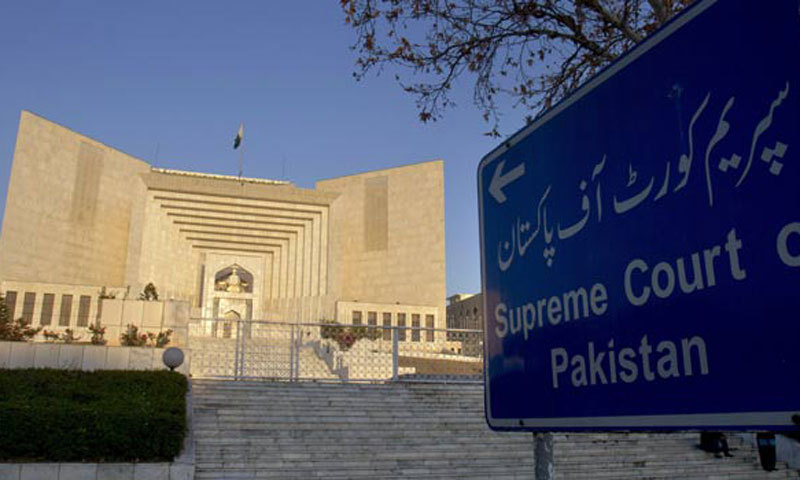The Supreme Court accepted on Monday a request by the government seeking early hearing of its appeal against suspension of detention order of Zakiur Rehman Lakhvi, the alleged mastermind of Mumbai terrorist attacks.
[contentblock id=1 img=adsense.png]
A bench comprising Justice Jawwad S. Khawaja and Justice Qazi Faez Isa will take up the appeal on Tuesday. The appeal was moved by the interior secretary, the district magistrate of Islamabad Capital Territory and SPP Islamabad, seeking annulment of the Islamabad High Court’s order which had suspended Lakhvi’s detention orders. On Dec 29 last year, the high court had ordered conditional release of the accused by suspending his detention orders issued by the Islamabad district administration soon after Dec 18 bail issued by an anti-terrorism court. And a day after the high court’s decision, a civil judge gave Lakhvi’s custody to Islamabad police in another case. Soon after filing the appeal the government had moved yet another application on Friday before the Supreme Court for early hearing of the case since the matter requires immediate consideration of the court as questions of public importance with regard to the constitution and the law had been raised in the petition.
[contentblock id=2 img=gcb.png]
Lakhvi is behind bars since Feb 19, 2009, in a case registered with the Special Investigation Unit of the Federal Investigation Agency for allegedly training terrorists and facilitating attacks in Mumbai on Nov 26, 2008, in which 166 people were killed. In its appeal the government contended that it was a well-settled law that in external matters, the courts follow in footsteps of the executive and never sit in appeal over the decision of the executive. And in such issues the courts always exercise judicial restraint. The government said the high court had passed the order on a complete misreading of law. By suspending the detention orders it had granted a final relief to Lakhvi which is contrary to the established principles of law. Thus the impugned order (Dec 29 order) is liable to be set aside on this ground alone, the petition contended. Referring to contents of the detention order the government appeal recalled that in the aftermath of Dec 16, massacre of schoolchildren in Peshawar, there were apprehensions that Lakhvi may incite or propagate possible terrorist activity prejudicial to public peace, tranquillity and maintenance of public order.
Moreover there was a likelihood that the accused along with others may cause damage to key installations and important public places resulting in breach of peace within the federal capital. Possibility of any untoward incident cannot be ruled out as Lakhvi is affiliated with a proscribed organisation, the appeal stated. Hearing an appeal against the award of death sentence to a condemned prisoner, Abdul Qayyum, by an anti-terrorism court in Karachi, Justice Asif Saeed Khosa deplored that “Sindh is beyond the domain of man”. The observation came when Justice Khosa who was presiding over a three-judge bench read out a Jan 2, report submitted by the superintendent of Central Jail, Karachi, highlighting that the condemned prisoner, Abdul Qayyum, had made good his escape from police custody when he was taken to the Civil Hospital, Karachi, for treatment on March 11, 2013. Qayyum was accused of murdering a man in the year 2000 while snatching his vehicle at gunpoint in Karachi.
[contentblock id=3 img=adsense.png]
Police had conceded that neither the convict had been arrested nor had he surrendered. The bench lamented that either the convicts escaped from police custody in the province or were provided with such an opportunity, adding that Sindh was beyond the domain of man. While rejecting the appeal, the court observed that the convict had lost his audience before the bench since he had absconded. The bench clarified that if the appellant surrendered before the law in future or was retaken by the court then he was free to move a fresh application for the resurrection of his appeal within a reasonable time.












